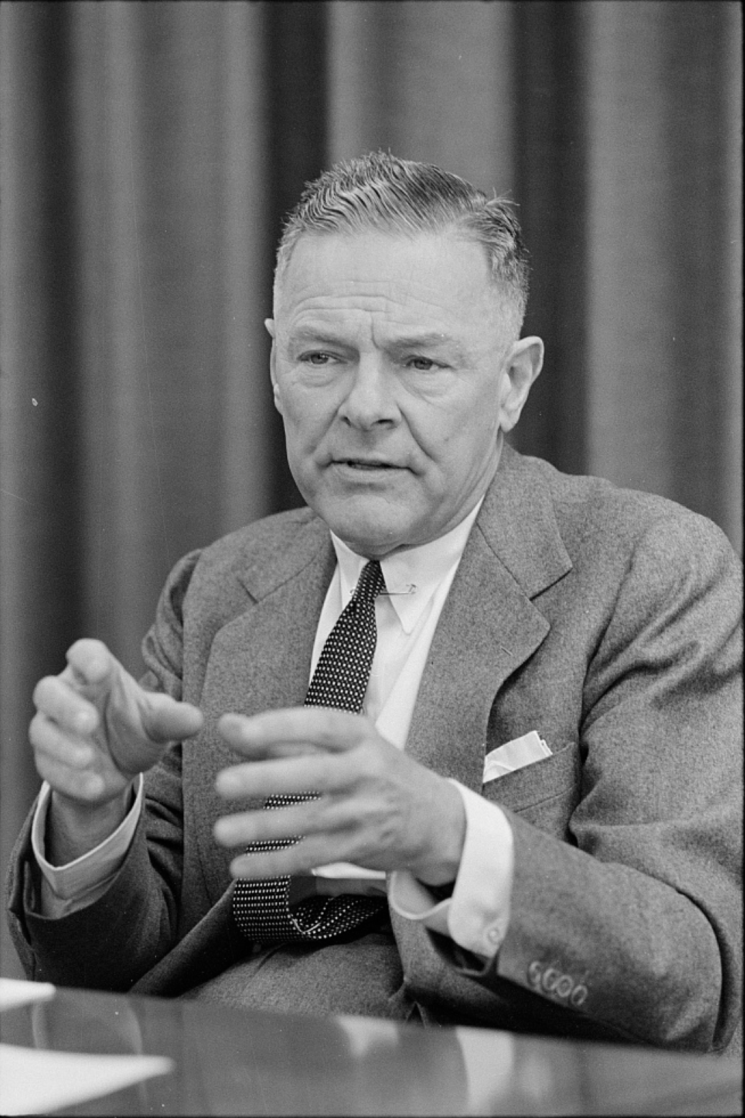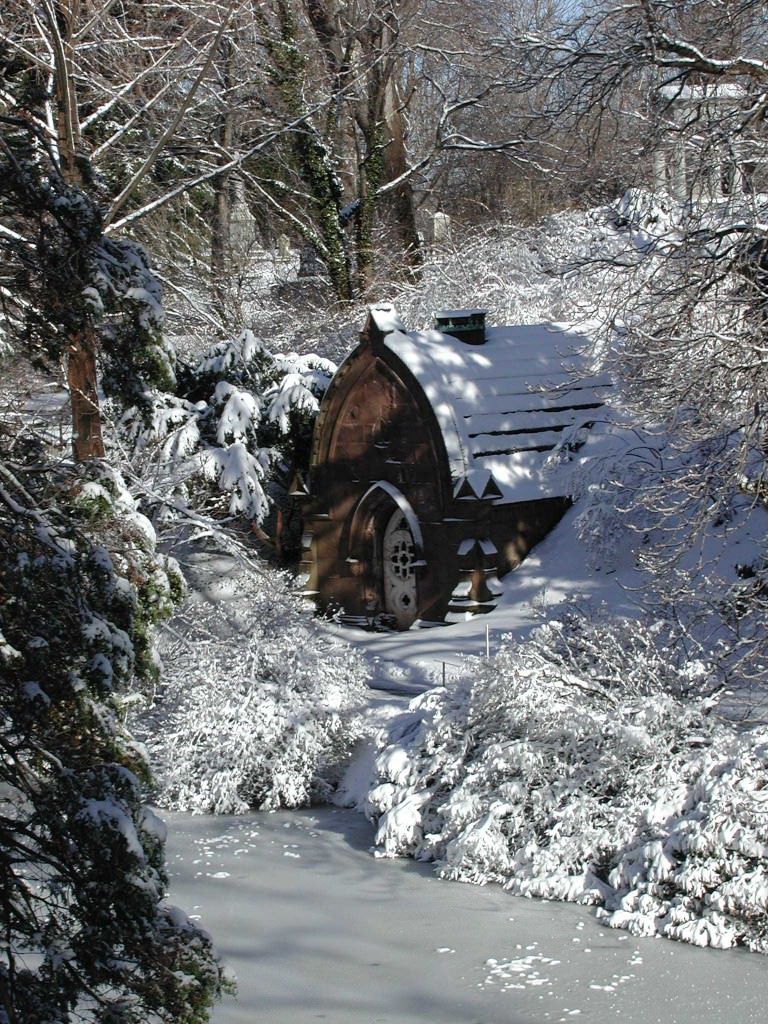Henry Cabot Lodge, Jr. (1902-1985)

Henry Cabot Lodge, Jr., a politician and ambassador, was born on July 5, 1902 in Nahant, Massachusetts. Henry Cabot Lodge, Jr. was born to the poet George Cabot Lodge and Mathilda Elizabeth Frelinghuysen Lodge. His paternal grandfather was Senator Henry Cabot Lodge and his great-great-great-grandfather was Senator George Cabot. As a child Lodge attended private schools and in 1924 he graduated cum laude from Harvard University where he majored in romance languages.
Following his graduation, Lodge began service as a reserve officer in the U.S. Army in addition to working for the Boston Transcript. After only a few months, he left the Transcript to tour Europe. When he returned from Europe he resumed his journalism career with the Boston Transcript and then with the New York Herald Tribune. Lodge was lucky in that he possessed the unique combination of being a reporter while also being born into a high powered political family which afforded him the opportunity to socialize with many notable figures of the time. This would prove to be an advantage for Lodge, as he chose to follow in the political footsteps of his well known relatives. He succeeded in doing so when in November of 1936, he won his first Senate race and became a Republican Senator for the state of Massachusetts.
When World War II began, Lodge was called upon to fight for his country, resulting in serving two tours during the war. His first tour began in 1942 while he was simultaneously serving as a Senator. As he wasn’t the only Senator to do this, President Roosevelt gave all Senators serving in the military an ultimatum- choose between serving in the military or being a Senator. Lodge chose to remain a Senator and was forced to immediately return to Washington. In November of 1942, Lodge was reelected to the Senate but instead chose to resign on February 3, 1944 in order to return to military service. This began his second tour which went from 1944-1945. His decision to resign from the Senate made him the first Senator since the Civil War to give up public office in order to serve in the military during wartime. During his distinguished service, which included capturing a four man German patrol by himself, he rose to the rank of lieutenant colonel and was decorated with the French Legion of Honor and Croix de Guerre with palm. When the war ended, Lodge returned to politics by defeating Democratic Senator David Walsh in the 1946 Senate race.
In 1951, Lodge was charged with running the campaign of General Dwight D. Eisenhower who was trying to secure the Republican presidential nomination. Though Lodge’s efforts on Eisenhower’s behalf were successful, it left his own Senate campaign in trouble. In 1952 Lodge narrowly lost his Senate race to John F. Kennedy, who at the time was a Congressman from Massachusetts. Interestingly, the Lodges and Kennedys share a long history of running against each other for the same Senate seat. Lodge’s grandfather defeated Kennedy’s grandfather in the 1916 Senate race and then Henry Cabot Lodge, Jr.’s son, George C. Lodge was defeated by Ted Kennedy in the 1962 Senate race.
Though Lodge’s defeat in 1952 ended his Senate career it didn’t end his political career. In February of 1953, President Eisenhower named Lodge U.S. ambassador to the United Nations, a post he served in for seven years- making him the longest serving U.S. ambassador to the U.N. in our nation’s history. In 1960 he resigned and ran for Vice President on the Republican ticket that slated Richard Nixon as the Republican nominee for president. History repeated itself when Lodge and Nixon lost the election to none other than John F. Kennedy. From 1961-1962 Lodge served as the first Director-General of the Atlantic Institute for International Affairs- an institute whose aim was to foster relationships between NATO allies and the international community.
Despite being defeated by Kennedy, Kennedy still recognized Lodge’s value and appointed him Ambassador to South Vietnam in 1963. Lodge quickly found the fledgling government of South Vietnam to be corrupt and unstable. He played a key role in the coup of South Vietnam’s President, Ngô Đình Diệm, by secretly assuring the coup’s leaders that the U.S. would not interfere or try to protect Diệm. While still Ambassador, an independent group of citizens made Lodge a write-in candidate for the 1964 Republican New Hampshire primary. Thinking he would never gain enough delegates to win the election, Lodge did nothing to support the group’s efforts to run a campaign on his behalf. When he did win the New Hampshire primary in a surprise upset, he began to take his campaign more seriously. Unfortunately, he fared poorly in other primaries and lost the Republican nomination. In 1965 President Johnson re-appointed Lodge as Ambassador to South Vietnam. When his appointment in South Vietnam ended, he went on to serve as Ambassador at Large from 1967–1968 and then as Ambassador to West Germany from 1968–1969. President Nixon then appointed him as head of the American delegation at the Paris peace negotiations in 1969. From 1970-1977 Lodge occasionally served as envoy to the Holy See.
Henry Cabot Lodge, Jr. is buried in Lot 3613 Oxalis Path in his family’s brownstone tomb which serves as the final resting place of three U.S. Senators: George Cabot, Henry Cabot Lodge and Henry Cabot Lodge, Jr.

SOURCES:
Photograph of Henry Cabot Lodge: Leffler, Warren K, photographer. Henry Cabot Lodge Interview. , 1965. Photograph. https://www.loc.gov/item/2016646634/.
Leave a Reply